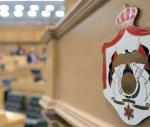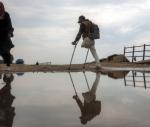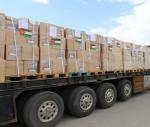You are here
Israel adopted British Mandatory forces’ repressive measures to contain, tame Palestinians
Oct 19,2022 - Last updated at Oct 19,2022
Palestinian businessman Munib Al Masri has drawn up a 300-page dossier of Britain's abuses of Palestinians during the post-World War II mandate, which lasted until 1948. His objective is to extract from Britain an apology for harsh treatment and atrocities against Palestinians in order to secure belated accountability for Britain's behaviour during its 31-year rule. Masri plans to submit the dossier to the British authorities in coming months. The British Ministry of Defence has told the BBC it is aware of charges against UK armed forces and evidence presented would be "reviewed thoroughly”. Since much of the evidence has been in the archives of the Imperial War Museum in London, it should have been reviewed long ago.
Two distinguished international lawyers, Luis Moreno Ocampo, former prosecutor at the International Criminal Court, and Ben Emmerson, former UN special rapporteur on human rights and terrorism, have carried out an independent review of the evidence collected by Masri, 88, and his team. This includes descriptions of arbitrary killings, beatings, torture, home demolitions, detention without trial, and the use of human shields. These practices were carried out within the British army's rules of engagement, which define the limits of actions against civilians or under orders from senior officers.
In an interview with the BBC, Emmerson said there is evidence of "shocking crimes committed by certain elements of the British Mandatory forces systematically on the Palestinian population". He said that some of them are of such enormous gravity that they would have been regarded even then as breaches of customary international law. These days, they could be classified as crimes against humanity and war crimes.
One example cited by the BBC took place during the summer of 1939, when soldiers of the Black Watch regiment rounded up 150 men in the village of Halhoul near Khalil (Hebron) where they were imprisoned in wire cages. Although the men were farmers rather than partisans, they were crowded together for two weeks during the hottest season of the year. Thirteen died of dehydration and one was shot dead while trying to escape.
A second example was the treatment meted out to the village of Bassa in 1938, where the Royal Ulster Rifles machine gunned and torched homes before rounding up men and put them on a bus which was driven over a landmine that exploded, killing everyone.
The British also aided the underground Zionist forces to wage war against Palestinians. While serving as an intelligence officer in Palestine during this period Orde Wingate, a committed Zionist, trained night patrols in Jewish colonies to raid Palestinian villages and defend against Palestinian partisan attacks. During World War II, Wingate made his name by organising a commando grouping dubbed the "Chindits", which conducted guerrilla operations against the Japanese in Burma. This effort made Wingate a heroic commander although the "chindits" were mainly a sideshow in the Burma campaign, according to an Indian air force officer who served as an official war correspondent in the Arakan.
The British also used a system of daily pacification, Professor Matthew Hughes told the BBC that was "fundamental, cumulative and attritional in wearing down the Palestinians" such as "restrictions on movement, curfews, seizure of property or crops as punitive measures, arbitrary detention and using forced labour to build roads and military bases... The whole country became something of a prison," said Hughes, author of "Britain's Pacification of Palestine."
These policies where part and parcel of the campaign to crush the 1936-1939 Palestinian rebellion against the British effort to build a national home for Jews in Palestine, rendering the indigenous owners of the country homeless, stateless and without a national identity.
The Masri documentation includes testimony by British soldiers and administrators, material from the War Museum and Palestinian survivors and their descendents. Masri is himself a survivor. In 1944, Masri, then a boy of ten, was shot and wounded by British troops. He told the BBC that Britain's actions "affected me a lot because I saw how people were harassed..we had no protection whatsoever and nobody to defend us". Then, as now, the Palestinians were on their own against their occupiers.
Born in Nablus in 1934, Masri travelled to the US in 1952 to study petroleum geology at the University of Texas. When he returned to Jordan, he established a profitable firm to develop regional energy resource. This has grown into the Palestinian Development and Investment Company (Padico), which deals in telecoms, banking, construction and agriculture. He rules his business empire from his mansion on a hilltop outside the West Bank city of Nablus. As that city, along with Jenin, is the centre of the new Palestinian intifada of despair, Masri has a first-class seat in the deadly drama that is unfolding.
Israel has adopted the entire gamut of British repressive measures to contain and tame Palestinians in occupied East Jerusalem, the West Bank and Gaza. So far, this year in the West Bank and East Jerusalem 120 Palestinians have been killed by Israeli army raiders, 100 since 18 Israelis and one foreigner were killed in attacks by Palestinians last spring. This is the highest number of Palestinian fatalities since 2015. Israel has also detained 5,300, including 111 women, and 620 minors. Of the total, 1,610 have been put in administrative detention without charges and without trial — a favourite British practice.













